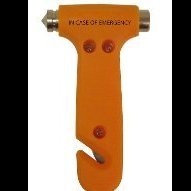Phd At Chiang Mai University
-
Recently Browsing 0 members
- No registered users viewing this page.
-
Topics
-
-
Popular Contributors
-
-
Latest posts...
-
25
UK Ofcom Says Trans Views Must Still Be Aired Despite Supreme Court Ruling
Probably because it's the blokes doing most of the raping. -
25
UK Ofcom Says Trans Views Must Still Be Aired Despite Supreme Court Ruling
You being one of them (allegedly 😉). Absolutely. I have no problem with blokes wearing dresses if that's what does it for them. As long as they stay out of women's sport, women's toilets/changing rooms and women's prisons then they can wear a pink girraffe costume for all I care. I will continue to refuse to pretend they are women though. -
0
Elon's American party.
Will it happen? What are the chances now with the "Big beautiful bill"? Is a new major party overdue and will it be able to "unite" the US again? No doubt about it,something big is brewing over there. Elon seems to be holding a grudge and Trump is sure to react some how. Thoughts? -
109
Trump "Winning" thread
Better than you, obviously. Generate your chart from Jan 20 until today, not from the bottom of the tarrif fiasco before the TACO trade kicked in and boosted the market. -
-
2
Cambodia Welcomes France’s Offer in Thai Border Dispute
He won't get out of bed for that.
-
-
Popular in The Pub









.thumb.jpeg.d2d19a66404642fd9ff62d6262fd153e.jpeg)







Recommended Posts
Create an account or sign in to comment
You need to be a member in order to leave a comment
Create an account
Sign up for a new account in our community. It's easy!
Register a new accountSign in
Already have an account? Sign in here.
Sign In Now